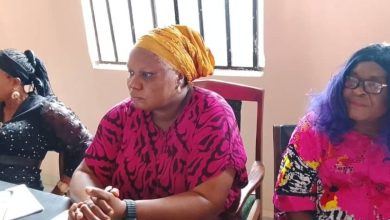Kano Authorities Seize N1.3bn Worth of Fake Drugs and Contaminated Foods in Major Crackdown
Over ₦1.3bn worth of fake drugs and contaminated food were seized at Kano’s pharmaceutical center.
Officials say nearly half of tested products failed safety standards, posing major health risks if sold.
Authorities at the Kanawa Pharmaceutical Coordinated Wholesale Centre (KPP-CWC) in Kano State have confiscated substandard drugs and contaminated food items valued at over ₦1.3 billion, raising fresh concerns about public health risks tied to illicit pharmaceutical trade.
Addressing journalists on Thursday, the Superintendent Pharmacist of the center, Furera Ado, said the operation targeted high-demand drugs such as painkillers, antimalarials, and antibiotic products often vulnerable to counterfeiting due to their widespread use.
According to Ado, lab analyses conducted on seized products revealed that 40.3% of the samples failed the Active Ingredient Content (AIC) test. This indicates that nearly half of the pharmaceuticals examined did not meet minimum therapeutic standards, making them not only ineffective but potentially dangerous for patients.
She explained that some of the confiscated items had already been handed over to the Kano State Committee on Drug Abuse for destruction in line with regulatory protocols. “If these products had reached the market, the consequences could have been fatal, ranging from failed treatments to avoidable deaths,” she warned.
KPP-CWC was established to operate under strict supervision and ensure quality assurance in the pharmaceutical trade. Ado emphasized that the entire facility is overseen by a registered superintendent pharmacist, ensuring professional conduct and regulatory compliance across all operations.
As part of its ongoing efforts to enhance operations, the center is also preparing to onboard new professionals through an interview process aimed at expanding oversight and reinforcing drug safety enforcement.
“We’ve recorded significant achievements in intercepting and eliminating fake, falsified, adulterated, and expired drugs, as well as reducing the circulation of illicit substances,” Ado added.
To further improve drug storage capabilities, KPP has recently installed a World Health Organization (WHO)-certified cold room imported from the United States. The cold storage facility, powered round-the-clock by solar energy, maintains a consistent temperature range of +2°C to +8°C, ideal for thermosensitive medicines and vaccines.
“This advanced cold chain system can even be configured to drop below freezing when necessary, making it suitable for sensitive biologicals and immunization materials,” she noted.
The Kanawa Pharmaceutical Coordinated Wholesale Centre is managed by Kanawa Pharmaceutical Partners Limited (KPP), a special-purpose vehicle established by the federal government in line with the Pharmacy Council of Nigeria Act 2022 (as amended).
Initially launched in 2003 under the Presidential Committee on Pharmaceutical Sector Reform (PCPSR), the initiative was designed to phase out unregulated, open-market drug hubs in major cities like Kano, Lagos, Onitsha, and Aba.
KPP-CWC represents a shift from the chaotic, unsafe drug trading environments of the past to a centralized and monitored wholesale system that enforces Nigeria’s National Drug Distribution Guidelines. Its model prioritizes drug safety, regulatory oversight, and professional accountability, making it a blueprint for wider implementation across the country.



